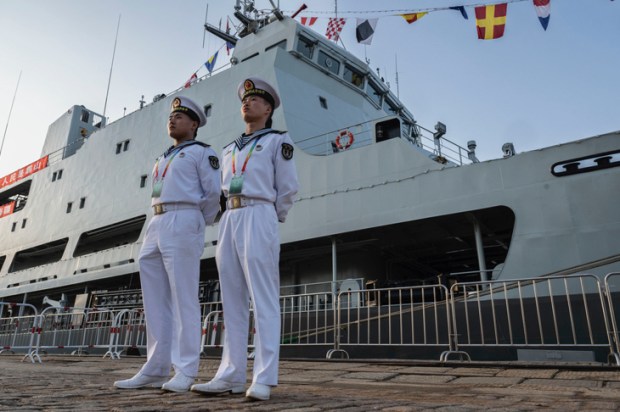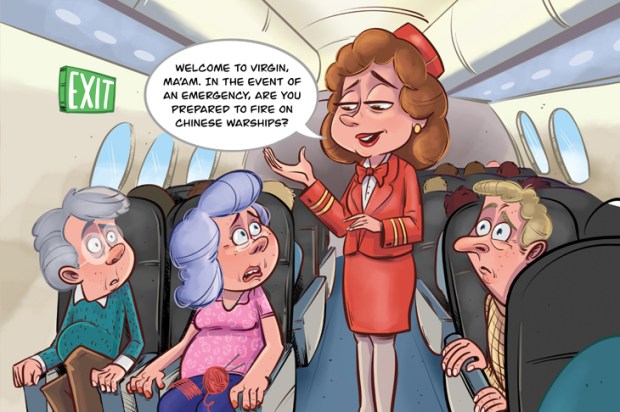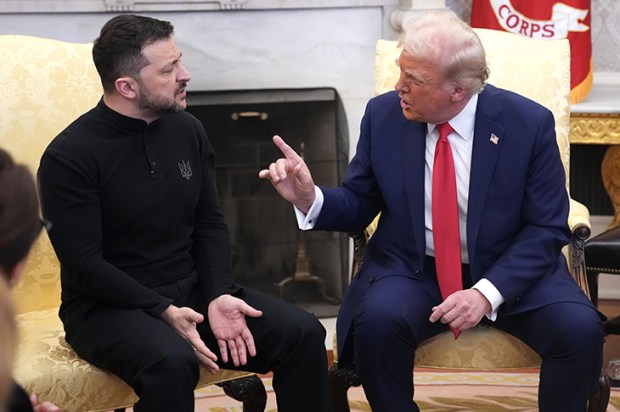When I first heard that Putin’s Russia had invaded Ukraine, I was consumed by a terrible rage. Millions of people, I imagine, around the world shared my view. How could a European country invade a neighbour in the twenty- first century? Unfortunately, though, I had forgotten the perennial lesson of history, that while human beings can look to the stars, we are grounded in the terra firma of an all-too-human reality. If we were not covetous, full of pride, fearful of our neighbours, replete with blind surety, and permanently aware of the exigencies of survival, violence and war would not exist. We would leave our doors open, have no dreams or ambitions (because they could negatively impact other people), and walk down dark alleys without trepidation or a backwards glance. That world, however, does not exist. We could not survive as human beings and navigate our material and psychological world, one with scarce resources – of food, love, and shelter – without recourse, on occasion, because of our inherent fallibility, to violence. War, as Heraclitus said, hyperbolically, is the father of all things.
My rage against injustice, as exemplified, in this instance by Russia, which can be a blunder when pushed too far, wanted Putin and his henchmen ground into dust, and in the first years of the war I believed and solemnly wished that complete, total and unrelenting war should be waged against Russia. Fighting a half-hearted war, on this view, is immoral because it prolongs suffering and leaves so many threads unknotted that further devastation is inevitable. It’s why the Allies occupied Germany after the second world war. Knowing you’ve lost a war is a powerful lesson for peace.
But circumstances change and only a fool, an ideologue, someone with a mental illness, or a person with no skin in the game, doesn’t adjust their opinions to a new reality. Just as spectators at a boxing match don’t cheer on a fighter who is bloodied and in danger of permanent injury, rational people don’t encourage a government to sacrifice their people in a war they cannot win. And both the best and the most deplorable leaders in history have made unpalatable decisions to save unnecessary suffering and death. A Polish man once told me, when he espied a biography of Winston Churchill in my hand, that Churchill wasn’t a hero, because he betrayed the Poles to the Russian communists at the end of the second world war. The conundrum that Churchill faced, of course, was not as simple as the Polish man envisaged. The likelihood of the complete destruction of Europe and the possibility of a third world war was a bigger issue than the freedom of Eastern Europe. Churchill wasn’t the only one to face an impossible choice. The British and Irish governments allowed terrorist torturers and murderers to go free to end the carnage in Northern Ireland. The history of the United Nations is a litany of democratic leaders holding their noses to avoid an even greater calamity. Australian politicians sold their virtue to China, a panopticon of oppression, to avoid a downturn in the economy. And citizens of democratic countries who complain about the price of an iPhone or a diamond don’t give a second thought to the people working to extract the resources needed to manufacture their luxury goods.
We all, then, in our personal and political lives, sacrifice family, friends and acquaintances when the circumstances allow no other option, especially when the alternative is more damaging than our preening virtue-signalling allows. In fact, the alacrity in which proponents of an ethical foreign policy, right across the liberal democratic world, have squeezed themselves into grotesque shapes to placate a resurgent communist China is extraordinary. It’s almost as if their naive rhetoric could only be advanced during a time of peace, a peace, which, ironically was maintained by the only – and only for a short historical period – hyper-power, America. A tactical retreat, then, is as rational a move, in certain circumstances, as an advance. Or, as Shakespeare wrote ‘the better part of valour is discretion’.
The economist Herbert Stein said, ‘If it can’t go on forever, it will stop.’ This is the situation we find ourselves in when we survey the Russia/Ukraine war.
Let us scan the horizon of the current reality. Europe has not the political will or the material resources to fight a long-term war against Russia, because short-sighted, touchy-feely politics has animated the European Union for decades. America does not have the resources to dominate the globe since the rise of China. We have returned to a multipolar world. New strategic decisions must be made because the old strategic pieties no longer work.
The Russia/Ukraine war was two years, three hundred and thirty-one days old when Donald Trump became President, for the second time, of the United States of America, on the twentieth of January, 2025. According to conservative estimates, 150,000 to 200,000 people have died in the conflict. The true figure is most likely higher. There are other contemporary wars with more casualties but none of these wars has the potential to destabilise the world. Somehow the war has to end because the consequences of a prolonged conflict would be catastrophic. Trump, like many leaders in the past, has a delicate balancing act to perform. He has to placate Putin, negotiate a settlement that the Ukrainians can accept, force the Europeans to take responsibility for their security, rebuild the American economy and military so that the threat of China and Iran can be faced, and, all the while, keep, as much as possible, world opinion on his side.
Negotiation, or doing a deal, as Trump describes the process, is not conducive to the latter, which is why, once again, the media has been disgraceful in how it has reported recent events; in particular, reporting the most egregious, and potentially dangerous of its falsehoods about Trump, that he said that the Ukrainians started the war. Trump, in context, was talking about Zelensky’s failure, after starting negotiations, to end the war. We need to see the deal before emoting further. The future of the world is too important for gung-ho, misleading commentary to destabilise sensitive and vitally important negotiations.
Got something to add? Join the discussion and comment below.
You might disagree with half of it, but you’ll enjoy reading all of it. Try your first month for free, then just $2 a week for the remainder of your first year.













